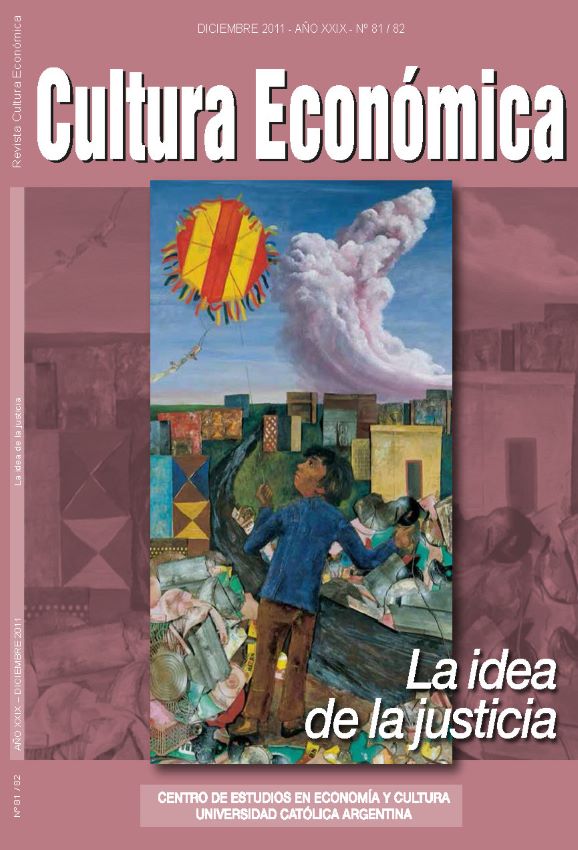Amartya Sen: The Idea of Justice
Keywords:
THE IDEA OF JUSTICE, AMARTYA SEN, JOHN RAWLS, DISTRIBUTIVE JUSTICE, FREEDOM, HUMAN RIGHTSAbstract
The paper analyzes the importance of Amartya Sen’s last book, The Idea of Justice, as it represents a synthesis of all his thinking. The author points out that the importance of this work lies in its ethical dimension, guided by reason, and compares it to John Rawls’s theory, drawing parallels and differences between the thinking of these intellectuals. Then, Migliore exposes the three great themes analyzed by Sen in his theory: the question of fair distribution of resources, democracy or freedom of participation, and human rights. Finally, as a conclusion, he explains that the work of the Indian economist has interesting coincidences with Christian social thinking.
Downloads
References
Hirschman, Albert O. (1999). Las pasiones y los intereses, Ediciones Península, Barcelona.
Goodin, R., Klingeman H. (2001) Nuevo manual de ciencia política. Istmo, Madrid.
Kelsen, Hans (1971). Teoría pura del derecho, Eudeba, Buenos Aires.
Rawls, John (2001). El derecho de gentes y Una revisión de la idea de razón pública. Paidós, Barcelona.
Rawls, John (1993). Teoría de la Justicia, F.C.E., Mexico.
Sen, Amartya (1977) “Rational Fools: A Critique of the Behavioral Foundations of Economic Theory” en Philosophy & Public Affairs, Vol.6, Nº4: 317-344.
Sen, Amartya (1982). Poverty and Famines: An Essay on Entitlement and Deprivation, Oxford University Press, Oxford.
Sen, Amartya (1999) Alocución en la 87º Conferencia Internacional del Trabajo, http://www.ilo. org/public/spanish/standards/relm/ilc/ilc87/a-sen.htm
Sen, Amartya (2000). Desarrollo y libertad. Editorial Planeta, Buenos Aires.
Sen, Amartya (2007). Identity and Violence: The Illusion of Destiny, W.W. Norton & Company, New York, London.
Sen, Amartya (2011). La idea de la justicia, Taurus, Buenos Aires.
Stevenson, Charles L. (1986) “El significado emotivo de los términos éticos” en A.J. Ayer, El positivismo lógico, FCE, México.
Young, Iris Marion (2001). “Teoría política: una visión general, en R.E. Goodin, H.D. Klingemann, Nuevo manual de ciencia política, Istmo, Madrid.
Walzer, Michael (1998). Tratado sobre la tolerancia, Paidós, Barcelona.
(2000). Just and Unjust Wars. Basic Books, New York.
Downloads
Published
How to Cite
Issue
Section
License













